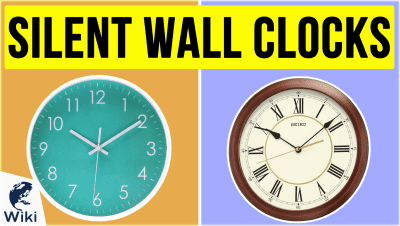5 Organizations Tackling The Issue Of Structural Racism
Over the years, there have been many groups taking a stand against racial discrimination and injustice. Unfortunately, despite these efforts, numerous policies and practices continue to harm marginalized communities. In no particular order, here are some organizations dedicated to identifying and addressing instances of structural racism.
First up, at #1, we have the Education Trust, a national nonprofit dedicated to closing opportunity gaps that disproportionately affect students of color and those from low-income families. Through research, policy analysis, and advocacy, the group aims to support efforts that increase college access and completion; it also champions initiatives that raise awareness of and act on equity issues.
In various states, the organization seeks to drive conversations about how the public education system can better serve people of color and low-income students, from pre-K through college and beyond. As a part of its efforts to make higher education more affordable for students in need, the group also works to protect and improve the Pell Grant program.
Coming in at #2 is the Equal Justice Center, a nonprofit organization that seeks to empower low-income families, workers, and communities with the goal of achieving fair treatment in the workplace, justice system, and society, regardless of immigration status. The group provides legal representation that enables individuals to recover unpaid wages and combat other injustices they encounter in their work.
The organization also provides legal assistance to undocumented students and graduates applying for Deferred Action for Childhood Arrivals, which allows these individuals to obtain temporary protection from deportation as well as the opportunity to secure better jobs. As advocates for systemic justice, the group also participates in national and local campaigns to improve employers' private practices and governments' public policies.
Taking the #3 spot is Mapping Prejudice, which works to unearth and expose racial covenants that reserved land for the exclusive use of white people; the project started in Minneapolis. It is based at the John Borchert Map Library at the University of Minnesota, where its team of activists, students, and scholars mobilizes community members to identify discriminatory deeds and create maps that show how racial restrictions have affected the population over the years.
According to the group, these covenants have intergenerational consequences, with the Twin Cities metropolitan area having one of the lowest African American homeownership rates in the country. Through its work, the project aims to transform people's understanding of structural racism by providing tangible examples of how it manifests.
Next up, at #4, we have the Road Map Project, a collective impact initiative that seeks to boost student success from early learning to college and beyond. Its Local Improvement Networks bring together district leaders, school teams, and community partners to help improve outcomes for students of color.
The Road Map Project aims to build more equitable education systems so that, by 2030, 70% of the young people within the region are on track to earn a postsecondary degree or credential. The Project has a major focus on closing opportunity gaps for students of color and low-income students.
Among its programs is Reconnect to Opportunity, which supports people ages 16 to 24 who have not completed high school, as well as those who have finished but are unsure about their next steps. The organization also supports the Speak Your Language campaign, which seeks to close the gaps in educational opportunities for immigrant students by highlighting the value of bilingualism.
Finally, at #5, we have the NAACP Legal Defense Fund. Established in 1940, it seeks to achieve racial justice, equality, and an inclusive society via litigation, advocacy, and public education. Through its work, the organization fights to increase fairness and equal opportunity for African Americans in all aspects of the economy.
As the NAACP Legal Defense Fund celebrates its 80th anniversary this year, they're also giving back -- to the tune of $40 million -- to support the careers of future civil rights lawyers. Thanks to an anonymous donor, the legal organization is launching the Marshall-Motley Scholars Program, named after Thurgood Marshall, the founder of the Legal Defense Fund (LDF) who was the first Black Supreme Court justice, and Constance Baker Motley, the first Black woman to serve as a federal judge and argue a case before the Supreme Court. The scholarship will fund the education and training of 50 aspiring civil rights lawyers over the next two decades -- including fully funding law school, summer internships, and a two-year postgraduate fellowship at a racial justice law practice in the South. That amounts to an investment of $40 million, the LDF said in a statement on Monday.
Since its founding, the organization has worked to protect the voting rights of African Americans, promoting the full and active participation of minorities in the country's democracy. The group strives to ensure that every student has access to a safe and inclusive education; it is also dedicated to reversing the school-to-prison pipeline.




